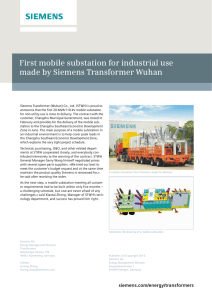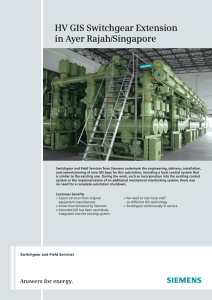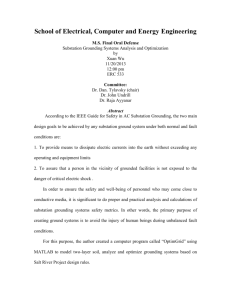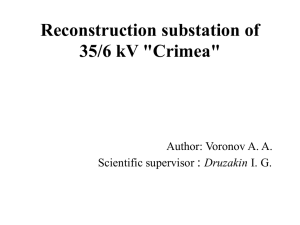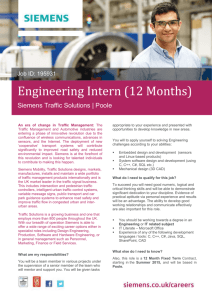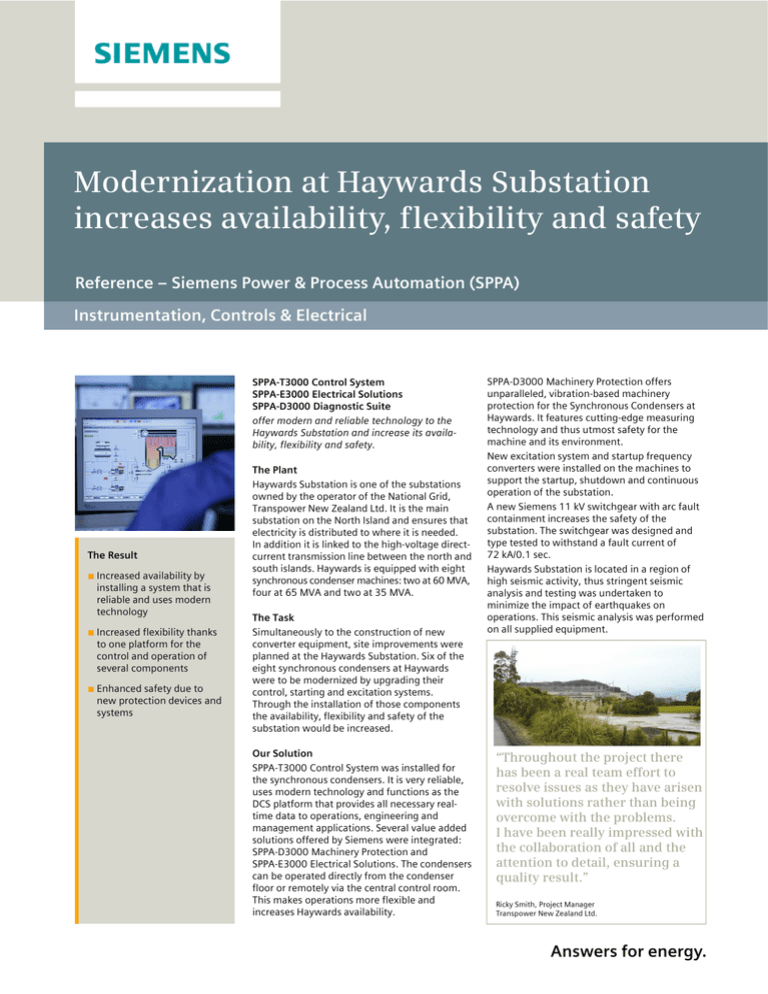
Modernization at Haywards Substation
increases availability, flexibility and safety
Reference – Siemens Power & Process Automation (SPPA)
Instrumentation, Controls & Electrical
SPPA-T3000 Control System
SPPA-E3000 Electrical Solutions
SPPA-D3000 Diagnostic Suite
offer modern and reliable technology to the
Haywards Substation and increase its availability, flexibility and safety.
The Result
■ Increased availability by
installing a system that is
reliable and uses modern
technology
■ Increased flexibility thanks
to one platform for the
control and operation of
several components
■ Enhanced safety due to
new protection devices and
systems
The Plant
Haywards Substation is one of the substations
owned by the operator of the National Grid,
Transpower New Zealand Ltd. It is the main
substation on the North Island and ensures that
electricity is distributed to where it is needed.
In addition it is linked to the high-voltage directcurrent transmission line between the north and
south islands. Haywards is equipped with eight
synchronous condenser machines: two at 60 MVA,
four at 65 MVA and two at 35 MVA.
The Task
Simultaneously to the construction of new
converter equipment, site improvements were
planned at the Haywards Substation. Six of the
eight synchronous condensers at Haywards
were to be modernized by upgrading their
control, starting and excitation systems.
Through the installation of those components
the availability, flexibility and safety of the
substation would be increased.
Our Solution
SPPA-T3000 Control System was installed for
the synchronous condensers. It is very reliable,
uses modern technology and functions as the
DCS platform that provides all necessary realtime data to operations, engineering and
management applications. Several value added
solutions offered by Siemens were integrated:
SPPA-D3000 Machinery Protection and
SPPA-E3000 Electrical Solutions. The condensers
can be operated directly from the condenser
floor or remotely via the central control room.
This makes operations more flexible and
increases Haywards availability.
SPPA-D3000 Machinery Protection offers
unparalleled, vibration-based machinery
protection for the Synchronous Condensers at
Haywards. It features cutting-edge measuring
technology and thus utmost safety for the
machine and its environment.
New excitation system and startup frequency
converters were installed on the machines to
support the startup, shutdown and continuous
operation of the substation.
A new Siemens 11 kV switchgear with arc fault
containment increases the safety of the
substation. The switchgear was designed and
type tested to withstand a fault current of
72 kA/0.1 sec.
Haywards Substation is located in a region of
high seismic activity, thus stringent seismic
analysis and testing was undertaken to
minimize the impact of earthquakes on
operations. This seismic analysis was performed
on all supplied equipment.
“Throughout the project there
has been a real team effort to
resolve issues as they have arisen
with solutions rather than being
overcome with the problems.
I have been really impressed with
the collaboration of all and the
attention to detail, ensuring a
quality result.”
Ricky Smith, Project Manager
Transpower New Zealand Ltd.
Answers for energy.
Published by and copyright © 2013:
Siemens AG, Energy Sector
Freyeslebenstrasse 1
91058 Erlangen, Germany
For more information contact
sppa-t3000.energy@siemens.com
www.siemens.com/energy/sppa-t3000
Siemens Energy, Inc.
Instrumentation, Controls, & Electrical
1345 Ridgeland Parkway, Suite 116
Alpharetta, GA 30004, USA
SPPA_FR_Haywards-T3-E3-D3_e_V1-0
Order no. E50001-G230-A338-X-4A00
Printed in Germany
Dispo 05401, c4bs-Nr. 7465
Printed on elementary chlorine-free
bleached paper.
Unrestricted
AL:N ECCN:N
All rights reserved.
Trademarks mentioned in this document are
the property of Siemens AG, its affiliates, or
their respective owners.
Subject to change without prior notice.
The information in this document contains
general descriptions of the technical options
available, which may not apply in all cases.
The required technical options should
therefore be specified in the contract.

